Are you consuming high levels of lead due to daily tea drinking? If you buy organic tea, you might be thinking “no way”. As it turns out, however, that may not be the case at all. If you have another brand of tea besides us that you drink, we highly recommend that you reach out to them to see if they have tested their products for heavy metals!
At Cusa Tea, we know our teas don’t contain toxic levels of heavy metals because we had them tested specifically for them. And to prove that our teas are safe, we’re sharing our test results with you.
WHY WE TESTED OUR TEAS FOR TOXIC HEAVY METALS
We had our teas tested specifically for toxic heavy metals because of California Prop 65 legislation, and having come across article after article highlighting the pesticides and harmful toxins that teas can contain.
Although we firmly believe being transparent with consumers is the right thing to do, we also want to educate Cusa Tea customers about why our innovative technology - and the world’s first premium organic instant tea - can be trusted. Before Cusa Tea, the patented cold-steep, evaporative dehydration process we use didn’t exist for tea. We use 100% USDA organic tea, our cold-steep technology, and a membrane filtration brewing step, so you can be comfortable that our teas contain zero heavy metals or pesticides.
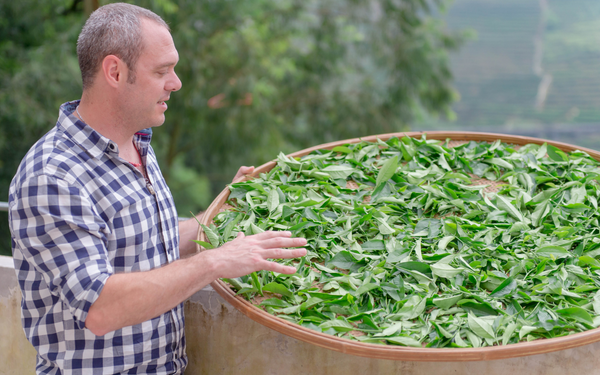
TOXIC HEAVY METALS FOUND IN MAJOR BRAND TEAS
Let’s take a step back to why we are so concerned about toxic heavy metals in tea to begin with. We came across a 2013 study published in the Journal of Toxicology, titled “The Benefits and Risks of Consuming Brewed Tea: Beware of Toxic Element Contamination”. It took a look at 30 top bagged tea brands - organic and not organic - and showed that a whopping 73% of teas brewed for three minutes and 83% of teas brewed for 15 minutes contained levels of lead that are deemed unsafe for pregnant and lactating women according to California Proposition 65 requirements.[1]
Not only that, it also found that 20% of teas contained toxic levels of aluminium, including two organic green tea varieties.
I’M NOT PREGNANT, SO WHY SHOULD I CARE?
Last month, we posted about toxins in tea bags, specifically an FDA-approved chemical called “epichlorohydrin”. That post dove into how careful you must be when selecting the bagged teas you consume. The 2013 toxic heavy metals study focused on bagged teas as well, but it examined the tea leaves and brewed drink itself, not the bags. Its results show that you should be also concerned about toxins in your tea, not just the package it’s brewed in.
News that over 70% of 30 leading bagged tea brands had unsafe levels of lead in them is scary for the average consumer for a few reasons. Although what is deemed “unsafe” according to Proposition 65 focuses on pregnant women and developing children, exposure to unsafe levels of heavy metals over a long period of time is bad for everyone. Heavy metals have very long half-lives, meaning they’re persistent toxicants - they stay with you for a while. In fact, toxic heavy metals may even cause transgenerational damage.[1]
As well, many of us frequently steep tea for longer than necessary. The longer you steep your tea, the more likely you are to consume toxins that leach into your brewed tea from the leaves.[1]
Finally, we consume toxins from multiple sources: food, drink and skin products being major culprits. Their ingredients are exposed to toxins from water, soil and the air. The chances that you’re being exposed to a whole gamut of toxins in daily life is pretty high, so no single thing you consume should put you above safe daily doses of any harmful element.
DON’T THE GOOD THINGS IN TEA COUNTER THE BAD THINGS IN IT?
Teas, especially green teas, contain small amounts of elements, as well as catechins, which are a type of antioxidant. These antioxidants have been shown to reduce total and LDL cholesterol and may also have antithrombotic effects, and reduce hypertension, insulin resistance and inflammation.[1]
Trace elements - or heavy metals - aren’t bad to ingest in small quantities. In fact, small amounts of magnesium, calcium, potassium, phosphorus and other trace elements are considered necessary for health.[1]
In excessive quantities, however, they have been proven to be harmful. They can cause endocrine disruption, cytotoxicity, mitochondrial dysfunction and oxidative stress. They can enhance common disease processes, like carcinogenesis, insulin resistance, neurodegeneration and immune dysregulation.[1]
In other words, although tea contains elements and antioxidants which may be helpful for the human body, it can also contain - if exposed to contaminated water, soil and air - harmful amounts of toxins that definitely don’t help you.
OUR TEST RESULTS
Below are screenshots of our results for toxic heavy metals testing for each flavor. To see the full report, click on the link below each screenshot.
CHAI
ORGANIC ENGLISH BREAKFAST
ORGANIC GREEN TEA
MANGO GREEN TEA
LEMON BLACK TEA
CITATION
[1] The Benefits and Risks of Consuming Brewed Tea: Beware of Toxic Element Contamination. https://www.hindawi.com/journals/jt/2013/370460/

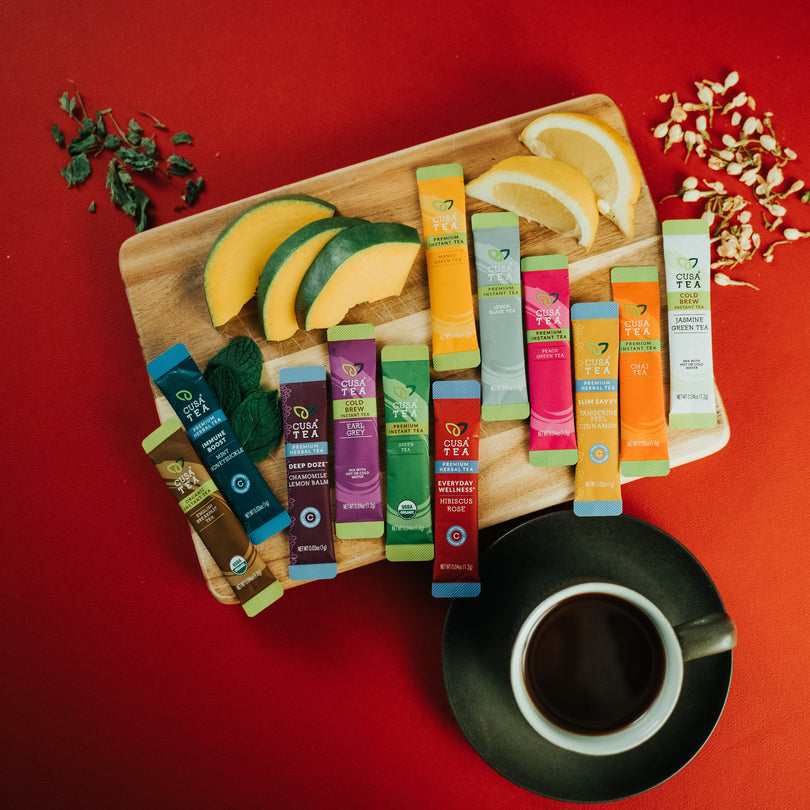



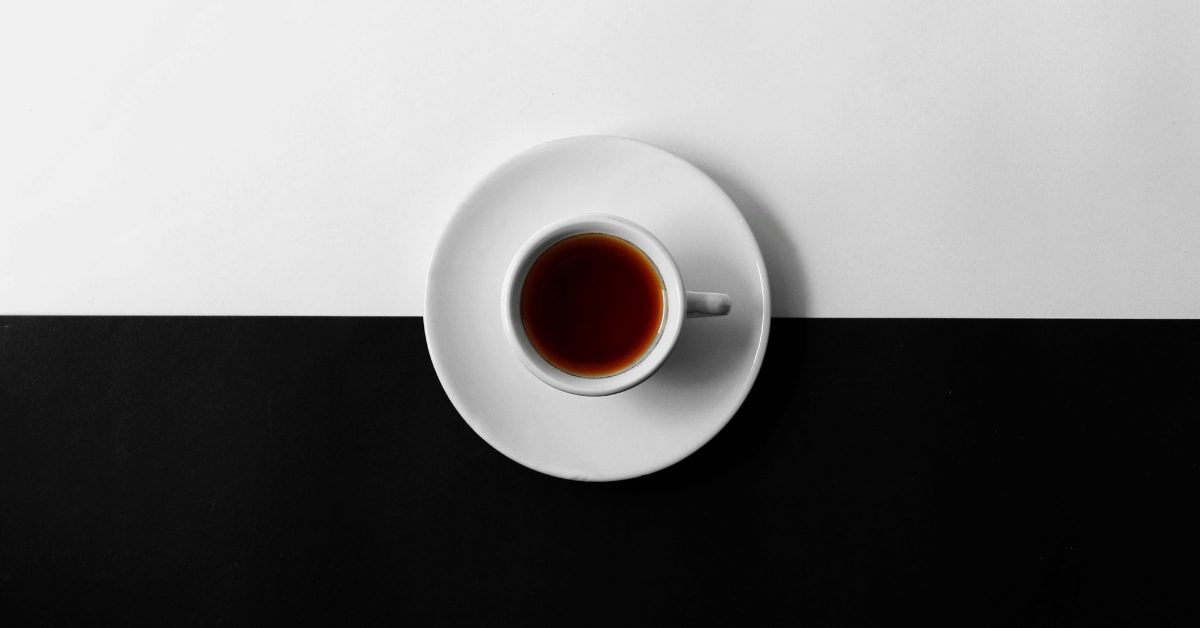





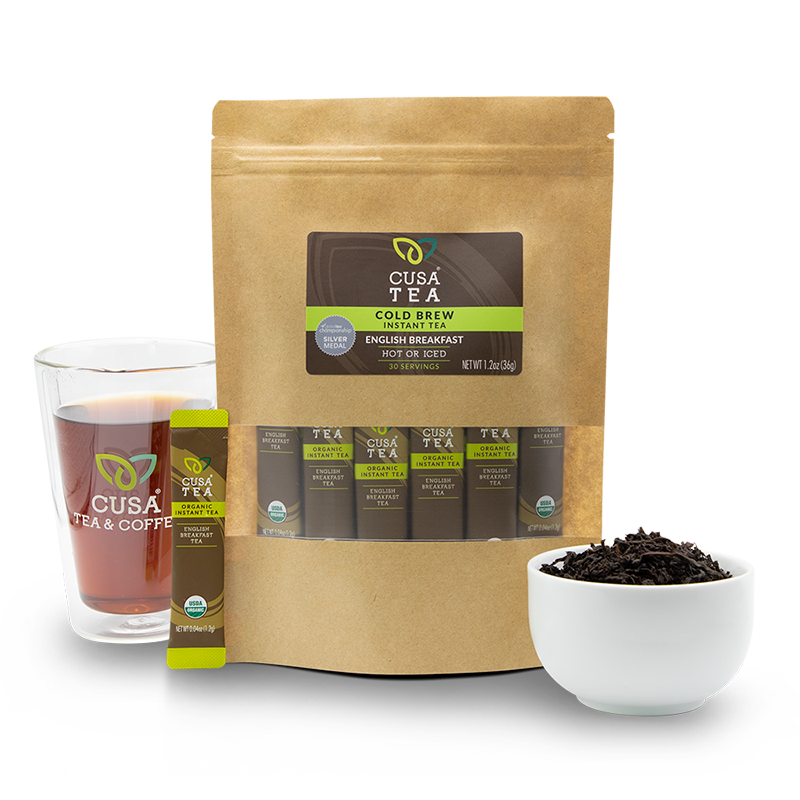
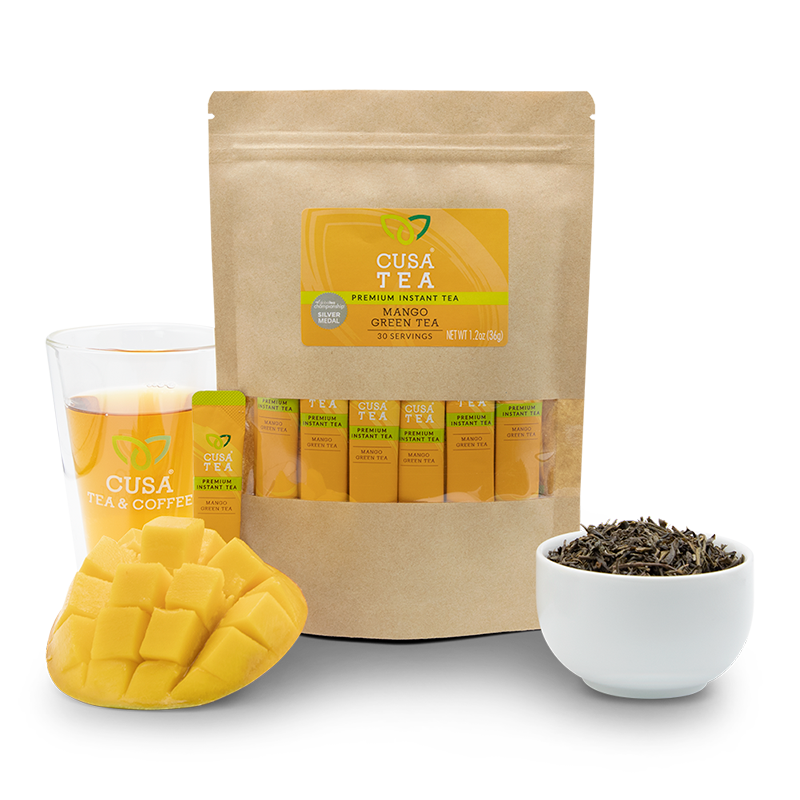
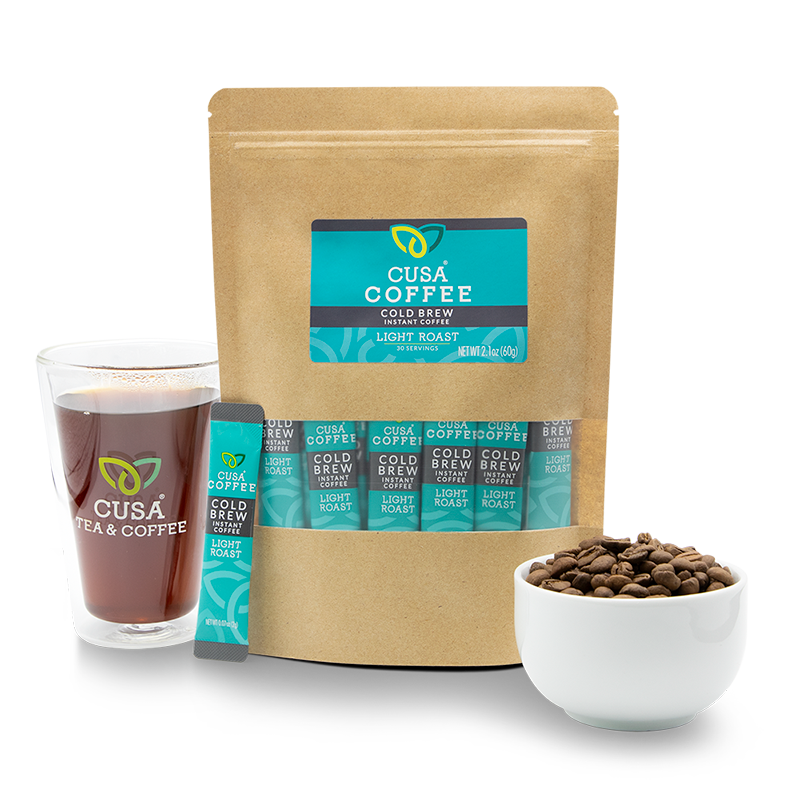
4 comments
Brian Rickert
High high quality teas. My girlfriend has to have at least 1 cup of chai each day and says there is no comparison to other chai teas.
High high quality teas. My girlfriend has to have at least 1 cup of chai each day and says there is no comparison to other chai teas.
Madi Lambiase
Would you post the lab results for the calories/nutrition?
Would you post the lab results for the calories/nutrition?
Cusa Tea
Hi Linda! Cusa Tea is not caffeine free at this time, since all of our current flavors have green or black tea, which contain natural caffeine. Look for some new caffeine-free flavors later this year or early next year!
Hi Linda! Cusa Tea is not caffeine free at this time, since all of our current flavors have green or black tea, which contain natural caffeine. Look for some new caffeine-free flavors later this year or early next year!
Linda Schoppe
Is Cusa Tea caffeine free?
Is Cusa Tea caffeine free?